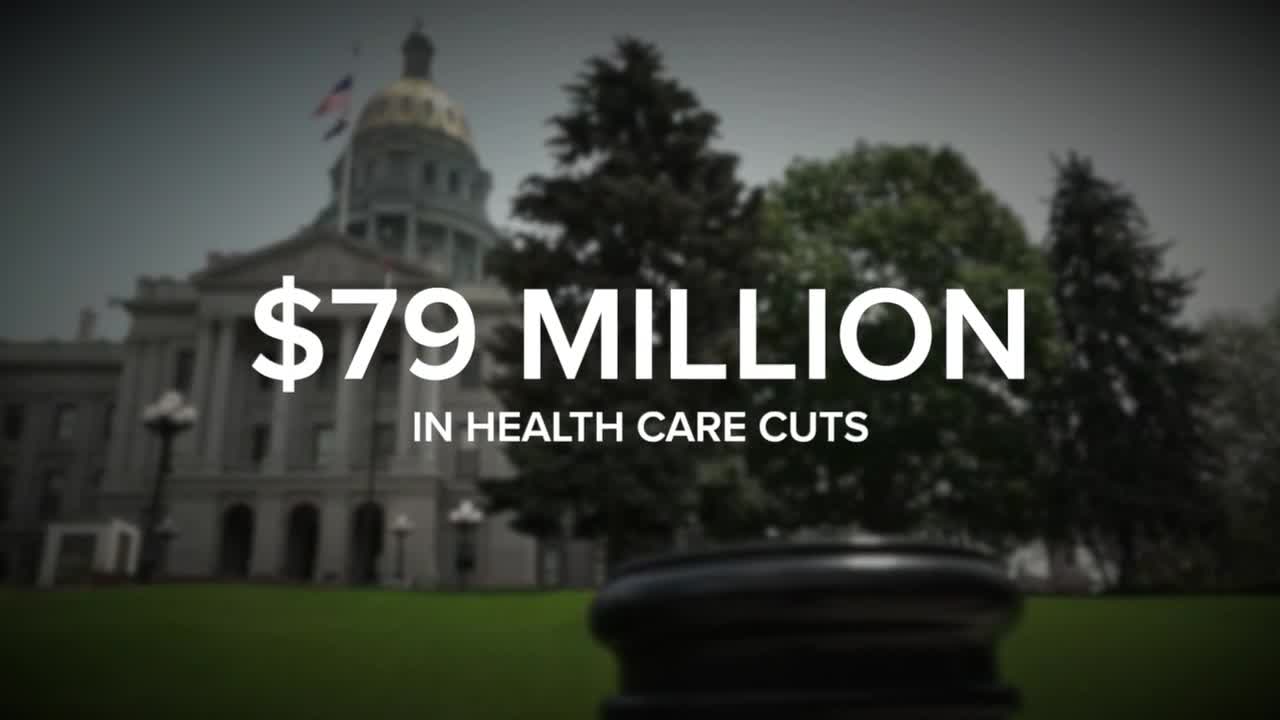DENVER — Coloradans may be forced to pay more and wait longer for health care treatment due to some of the budget cuts Gov. Jared Polis announced this week.
Polis said the cuts were necessary to help rebalance the state budget after a Republican federal tax and spending bill, H.R.1. (One Big Beautiful Bill Act), reduced the state’s revenue and created a $783 million budget gap.
"Unlike the federal government, we have to balance our budget,” Polis said.
The governor made more than $250 million in cuts and redirected spending across departments.
"What H.R.1 does in a way is it makes these cuts, and then it makes states be the bad guys in delivering the news,” Polis said.
Colorado spends about one-third of its annual budget on health care, so it may come as no surprise the Colorado Department of Health Care Policy and Financing took the biggest hit with more than $79 million in cuts.

About half of that was caused by the governor rolling back a 1.6% increase of Medicaid provider rates, which is money the state pays to health care providers for delivering services to Medicaid patients.
The Colorado Hospital Association (CHA) said it’s disappointed the provider rate increase was removed.
“Colorado hospitals are already navigating very difficult financial pressures, and this setback further strains the resources needed to care for patients and communities,” CHA said in a statement. “We recognize the tough choices required in this budget process, but reductions to provider rates – particularly alongside other health care cuts stemming from H.R. 1 – add to the challenges ahead.”
The governor also cut dental provider rates.
Dr. Jeff Kahl, a dentist and former president of the Colorado Dental Association, said dental provider rates weren’t addressed for a long time, leading to fewer options for Medicaid patients.
“What we saw from 2018 to 2024 was that there were less dentists in the state of Colorado who were willing to see patients who were insured through Medicaid programs,” said Kahl. “The Dental Association worked really hard with the Joint Budget Committee to find a purposeful way to address the 25 procedures that we felt were the most important things for the overall health of people in Colorado. In 2024, we raised the rates on those 25 procedures.”

Politics
State lawmakers return to CO Capitol for special session to address budget gap
But with the governor now cutting dental provider rates, Kahl said there will be consequences.
“As we dial back the amount of money that providers are paid, it disincentivizes providers to provide care, because everything else is getting more expensive,” Kahl said. “The cost of their workforce is getting more expensive, the cost of their supplies are getting more expensive, and now we're dialing back fees to what are closer to pre-pandemic fees, because they hadn’t been addressed for so long.”
He says it will make it more challenging for Medicaid patients to get the care they need for relatively simple treatments.
“If you have what's a small cavity today, if you can address it today, the treatment for that is very conservative,” Kahl said. “If you avoid treatment, those cavities can get worse and require more involved, more expensive care, and also increase pain and discomfort for those patients.”
Polis said despite the pain these cuts may cause, it’s only the start.
“This is just the beginning of the damage of H.R. 1 to Medicaid,” Polis said. “I mean, this is the tip of the iceberg, right? What happens over the next couple of years, when the actual cuts hit and some of the onerous paperwork requirements that would require additional work for the state? That's when there's even greater damage to Medicaid.”
While Polis and Democrats blame Trump and Republican members of Congress for forcing the state into this position, Republicans at the state capitol say the governor and his party are to blame because of years of overspending.
“Colorado cannot continue to depend on one-time funds and temporary measures to balance the budget,” said State Rep. Rick Taggart, a member of the Joint Budget Committee. “While these actions may provide short-term relief, they do not address the underlying challenges and create uncertainty for families and providers. We must commit to sustainable budgeting that prioritizes discipline, transparency, and respect for the Taxpayer’s Bill of Rights.”
The spending cuts Polis announced this week were part of a three-pronged approach the governor and Democratic lawmakers pursued to close the budget gap. Their plan also included cutting nearly $250 million in corporate tax breaks and taking up to $325 million from state reserves.
Budget cuts can be unpopular with voters, especially if services they depend on are impacted.
Lawmakers decided not to make the cuts themselves during the six-day special session. Instead, they left the cuts up to Polis, who does not have to run for re-election again and will leave office in January 2027.







